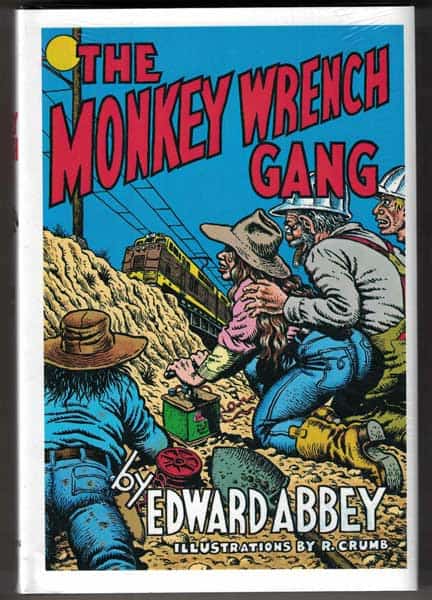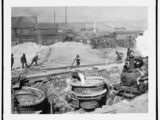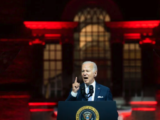The Big Picture -Â
By Glynn Wilson -Â
CATOCTIN MOUNTAINS, Md. — What would you do if you knew you had just one week more to live in a place that feels like home, knowing there are more stories to discover and tell?
Maybe vow to come back next year and tackle the other stories?
That’s sort of how I feel, yet always cognizant of an inescapable fact of human life on planet Earth: There are things about the future that remain uncertain.
There is no escaping the fact that the mountain campgrounds in the East will close down in a few days as the nighttime temperature dips below freezing, however, forcing campground managers to shut off the water in the bathrooms for the winter. The snow will be here soon too, making roads impassable, at least until the snow plows arrive.
This we know, those of us who choose to live the life of a peregrinator (one who travels about).
“A time to build up, a time to break down,” the Byrds sang in 1965. They knew.
While making the rounds of the campground this weekend, I reconnoitered with someone who instinctively mentioned the American author, essayist and environmental activist Edward Abbey in conversation. Perhaps our similarities are somewhat obvious to the trained observer, if not our differences.
So over Sunday morning coffee, I decided to revisit what I knew of him. There’s not much in the Sunday papers anyway. I’m sick and tired of hearing and talking about Trump.
Abbey was perhaps best known for his non-fiction autobiographical account of his time as a park ranger at Arches National Park in 1956 and ’57, the year I was born, Desert Solitaire. It is still considered an iconic work of nature writing and early American literary journalism about the natural environment and environmental activism.
For environmental activists, The Monkey Wrench Gang (1975) and Hayduke Lives (1990) may be more popular, influencing the creation and the work of Earth First. That is until that group went mainstream for public relations purposes in the late 1990s, a phenomenon I had a front row seat to witness in person and write about in Knoxville, Tennessee while free-lancing for the once great local alternative weekly newspaper, MetroPulse.
Kirk Douglas even bought the movie rights to Abbey’s The Brave Cowboy, and turned it into “Lonely Are the Brave” in 1962.
Like many iconic figures, Abbey was also controversial, and has been called everything from racist and sexist to a libertarian-anarchist to an “eco-terrorist,” a term that was apparently inspired in a backlash against the radical environmentalism of Earth First.
What Abbey was not was a typical San Francisco-style Sierra Club type of neo-liberal activist. Some on the political right might find things to support about Abbey’s views these days. He also disapproved vehemently of massive immigration into the country, especially from Latin America.
But like many authors I admire, in most I find things to disagree with, and this is where we part company. Abbey was wrong about the impact diversity has on a population and a country, and he should have known better from studying evolution. Perhaps he didn’t study it close enough.
After graduating from high school in Pennsylvania in 1945, Abbey went traveling to explore the American southwest by foot, bus, hitchhiking and freight train hopping. After being drafted into the U.S. military near the end of World War II and serving a controversial stint in the Army in Italy, Abbey took advantage of the G.I. Bill to attend the University of New Mexico where he received a B.A. in philosophy and English in 1951, and a master’s degree in philosophy in 1956.
There he became the editor of a student newspaper at the time, where he published an article headlined: “Some Implications of Anarchy.” It was so controversial university officials seized all of the copies of the issue and removed Abbey as editor.
Somehow that reminds me of my short stint I served as editor of a college newspaper I started, well before I had ever read any of Abbey’s work. For more on that story, you will have to read my memoir.
Jump On The Bus: Make Democracy Work Again
I’m no libertarian, no anarchist, and still believe some answers lie in Gandhi’s non-violence.
But there is one famous quotation from that banned Abbey article that I embrace.
“Man will never be free until the last king is strangled with the entrails of the last priest.”
Long live democracy.
And for humanity to survive on this planet or in this universe for much longer, there is one thing I know for sure. The death wish embedded in religion must be quelled and replaced by a narrative rooted in science.
You can take that to the outback and smoke on it.
What Humanity Needs: A Shared Narrative for the 21st Century
___
If you support truth in reporting with no paywall, and fearless writing with no popup ads or sponsored content, consider making a contribution today with GoFundMe or Patreon or PayPal.














